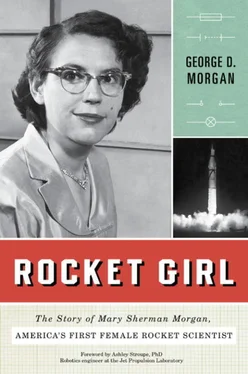As she watched the sky, ten-year-old Mary imagined a large condor lazily gliding above her. It was just a crow, but she imagined it to be a mighty condor. The previous week her teacher had taught the class a lesson about large North American birds. Mary was especially fascinated by the California condor—the largest bird in North America.
“Is it only found in California?” she had asked.
“No,” her teacher had replied. “Some condors can also be found in Mexico.”
“Mexico is too far. I’ll have to go to California.”
Mary could not tell her parents that one of her new goals was to someday see a California condor with her own eyes. She knew they would not care. Her parents would loudly disparage her, which would result in her older brothers finding out, and soon it would be just one more thing to be incessantly teased about. Mary had discovered that keeping one’s dreams a secret was often preferable.
She tried counting stars for a few minutes, then gave up. There were just too many of them. Lying on her back, she whispered heavenward.
“I want to fly into space.”
Of course, she knew that space travel was one goal that was grandiose. In 1931, humans traveling through space was solely the realm of science fiction. But it was a goal nonetheless—a goal that had set her on a new monthly routine. Several nights each month, the moon, vanquished by the peculiarities of its orbit, disappeared from the sky and revealed to humble humanity the depth of the infinite. On such moonless nights the sky would develop a display of brilliant magnificence. Each and every planet and star and galaxy would be highlighted by that perfect blackness, making their image clear and precise and glorious in their respective fixed positions. Her teacher said this lunar phase, during which the moon simply disappeared from the sky, was called the “new moon.” Mary thought that was odd.
“Shouldn’t it be called ‘no moon’?” she had argued. “Why call it ‘new moon’ when there is no moon?”
“Everyone calls it ‘new moon.’ I can’t explain it.”
Keeping her eyes on the Milky Way, Mary turned her head ever so slightly to one side, allowing her cheek to caress the cool prairie grass. The fescue was over a foot tall on this part of the farm, making for excellent hiding. She guessed the time was past 9:00—putting her way overdue for bedtime. She imagined Elaine arguing with her parents.
“Why do I have to go to bed? Mary’s not in bed. Why should I have to go when she doesn’t have to?”
This would precipitate enough frustration for her mother to step out of the house and call from the stoop.
Mary? Mary—where are you?
But the farm was too big for her mother to conduct a search, so she would send out the boys. And if the boys found her, they would be very angry that they had to be troubled with searching for their little sister. There would be retribution, of course. Vernon might cut her hair off at night when she was asleep. Clarence might sell her next pail of milk and claim Mary had spilled it. Michael might try to shoo her horse and get it to run away.
Or they might just take a switch to her calves.
Mary knew she ought to be concerned about the consequences of rule breaking, and the fraternal retribution that so often followed, but the vastness of the stars and the eternal space beyond them were so large, so massive, so watchable. How could a person not be mesmerized by the spectacular moonless Milky Way opera as it danced and sang across the unbounded dark, a work of nature so immense and mind-numbing she could not draw her eyes away even for a moment? Was getting to bed by 8:00 really all that important when compared to watching a universe with a billion billion suns? Why couldn’t everyone else be as impressed by it as she?
Then Mary heard it; a far-away forlorn call that coasted softly across the tops of the grass, moving wavelike in its harmonious assonance. The sound-absorbing quality of the prairie muffled the sound slightly, but it still managed to penetrate. Mary held her breath, less she miss it. Yes—there it was again.
Mother was calling.
“Maarryy!”
Mary waited still and quiet, hiding from responsibility as much as from a family she suspected no longer loved her—if they ever did. She listened some more, but all was quiet. Realizing her mother had given up, Mary exhaled and resumed breathing.
Then another sound—this time of movement. It was subtle enough to include nothing more than the mere rustle of half a dozen strands of grass, but that was enough. Mary looked to one side and saw Missy arrive to nuzzle her bare leg. The fur tickled against her white skin, and she smiled. The feline stepped over the right leg and nuzzled Mary’s left calf—then returned to the right calf, as if unable to make up its mind which leg was more preferable. Within the quiet of the new-moon North Dakota night, the cat’s purr was as clear and distinct as her father’s 1932 John Deere on a windless harvest morning.
“I know you’re missing your babies,” she said, scratching the burr-covered feline’s ears with her fingers. “You’re probably wondering what happened to them, aren’t you?”
With each stroke of her nails, the cat’s purring increased in volume and enthusiasm. When Mary pulled her hand away, the cat pushed its head into her palm, not wanting the moment to pass without exploiting every potential caress.
“Mother called us. What do you think we should do?”
When she felt several quick, pounding footsteps thundering through the ground, she knew the boys had been released. Leaning in nose to nose with Missy, Mary held an index finger to her mouth.
“Sh.”
Mary awoke.
She was chilly, and the cold had acted like an alarm clock. Still lying on her back, the first thing she noticed was that the clear skies of the previous evening had been replaced by a thick layer of clouds. Obviously her brothers had not found her, and so she had ended up sleeping the entire night in the field. Mary turned onto her stomach and raised her head just high enough to see the farmhouse. The truck was gone, meaning her father was probably in town on an errand. She could hear the “chick-chick” sound her mother clucked whenever she was feeding the chickens. Star was tied up at his post. The only person she could see was Elaine, sitting patiently on the front step, waiting for Mary to take her to school.
Mary stood up, brushed the loose grass from her dress, and ran toward the farmhouse.
“Mary—would you please put the chalk and erasers away?
“Yes, Mrs. Bowman.”
Mary dutifully completed the errand, then stepped outside. Elaine was waiting.
Another school day had come and gone; time was moving so fast. With third grade almost behind her, Mary dreamed of the warm summer to come—a summer which seemed so far away under the canopy of blue-gray thunder clouds. From the top of the steps of Ray’s schoolhouse she could see the Jurgensen farm several miles away. Its two-story farmhouse was highlighted by a few streaks of sunlight bursting through and settling to earth, surrounding the dwelling like a halo. As Mary watched, some dark, mystical force—angry that sunlight had punctured through its gloomy barrier—slowly closed ranks and choked off the light.
She turned away. Stepping to the ground, Mary grabbed Star’s saddle belt and gave it a sharp tug to make sure it had not developed any slack. Elaine appeared at her side.
“I’m hungry.”
“Mom will have something for us.” Mary decided the belt was not tight enough and cinched it to the next loop. Star gave her a muffled nicker.
A woman approached them. Mary recognized her as the mother of one of the fourth graders, Bjoern Gudmund. Mrs. Gudmund wore a wide smile and carried in her hands a black-and-silver device about the size and shape of a Duckbill F-30 carburetor. It was a device Mary had heard about, but had never seen.
Читать дальше












